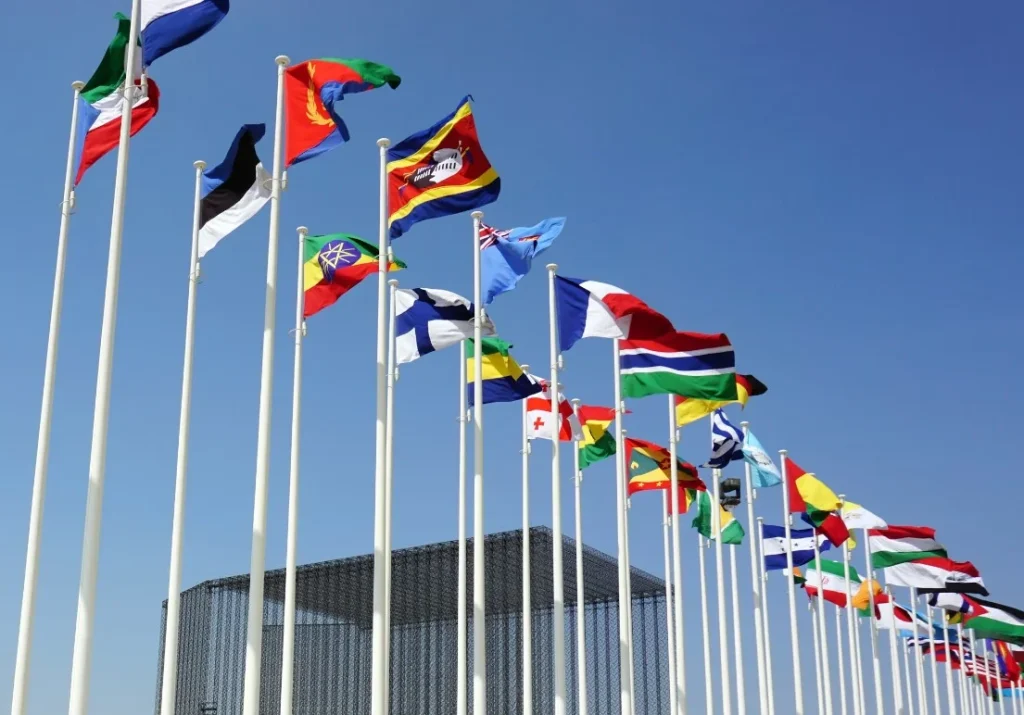Comparing Tax Systems: Best Countries for Profitable Business Abroad

How to Choose the Right Country for Business Relocation: A Tax System Overview
When expanding into international markets, selecting a country with a favorable tax system is crucial for entrepreneurs. Tax rates, incentives, and regulatory complexities directly influence the profitability and long-term success of a business. For instance, while the global average corporate tax rate stands at 23%, it can soar to 50% in some regions or drop to 0% in others.
As globalization advances, international tax planning has become increasingly intricate due to evolving regulations, new treaties, and tax changes. Governments across the globe are vying for investment by offering enticing tax conditions, but the true picture is often more nuanced. Low tax rates might come with stringent requirements for economic presence or extensive reporting obligations, while more straightforward company registration processes could be accompanied by higher mandatory payments.
Why Tax Systems Matter When Choosing a Country for Business
Many entrepreneurs focus on finding countries with the lowest taxes, which is understandable since high tax rates can drastically diminish business profitability. However, tax rates—or even exemptions—should not be the only consideration. The overall quality of life in the country is equally important. A nation with low taxes but weak consumer purchasing power may limit your growth potential.
Furthermore, when operating in multiple countries, businesses could face the challenge of paying taxes on the same income in various jurisdictions. To avoid this, many countries have signed Double Taxation Avoidance Agreements (DTA). It’s essential to check whether the country you’re considering has an agreement with your home country to avoid being taxed twice.
Tax incentives are another critical factor to consider. Numerous countries offer favorable tax conditions for startups, exporters, or businesses investing in innovation. These programs not only reduce the tax burden but also increase competitiveness in the global market.
The optimal tax system strikes a balance between low tax rates, attractive incentives, and manageable risks. The most favorable countries for doing business are those offering accessible markets, low taxes, and favorable conditions for foreign investors.
Where Is It Easiest to Establish a Business?
Currently, Oman and Bahrain stand out as the top choices for ease of doing business, thanks to their low tax rates and business-friendly environments. The UAE is also an attractive option, offering zero income tax, a high standard of living, excellent safety, and strong economic stability. However, the UAE faces intense competition, making Oman and Bahrain slightly more favorable in comparison.
In Europe, several countries also offer beneficial tax environments for businesses. Ireland, in particular, is highly attractive to corporations, especially those in the tech industry. Switzerland is recognized for its low tax rates and robust economy, while Cyprus offers favorable conditions for foreign investors.
When comparing tax systems across countries, it’s essential to look beyond just tax rates and also consider other factors that affect business operations. Let’s explore the key features of each country in more detail.
Oman
Oman ranks as one of the most appealing countries for doing business. Corporate tax rates range from 3% to 15%, with tax rates as low as 0% in Free Zones, significantly easing the financial burden on entrepreneurs. Foreign companies benefit from tax incentives, a simplified registration process, and reduced bureaucracy. Oman is actively developing Free Economic Zones and offers various benefits to international businesses. Additionally, competition remains relatively low, as Oman has only recently opened its doors to foreign investment.
Bahrain
Bahrain offers several key advantages for businesses, with its strategic position in the Persian Gulf providing quick access to major regional markets. The country has become a central hub for financial services and startup infrastructure. Special Economic Zones in Bahrain offer simplified registration processes and business-friendly policies. With a zero-income-tax regime and only a 5% VAT, it is highly attractive to international companies. The oil and gas sector, however, is subject to a higher tax rate of 46%.
UAE
The UAE stands out as a unique business jurisdiction due to its zero corporate tax in most industries. When businesses reach an annual income of $102,000, they are subject to a corporate tax rate of only 9%, along with a VAT rate of 5%. Companies operating in Free Economic Zones benefit from additional perks, such as 100% foreign ownership. Known for its high level of digitalization and ease of tax administration, the UAE is particularly appealing for tech businesses and startups.
Cyprus
Cyprus offers one of the most competitive corporate tax rates in the EU, set at just 12.5%. Moreover, IT companies and research-oriented businesses can enjoy a reduced tax rate of 2.5%, making Cyprus especially attractive for tech startups. The country’s tax incentive programs for new businesses, coupled with its straightforward registration process, make it an ideal choice for those seeking to enter the European market.
Ireland
Ireland is renowned for its corporate tax rate of just 12.5%, particularly beneficial for retail businesses. It is one of the most favorable jurisdictions in Europe for international corporations. With some of the lowest income taxes in the EU, Ireland’s legal framework encourages the establishment of offices and IT companies. Additionally, the country offers tax credits for research projects and support for new enterprises, further enhancing its appeal for businesses looking to expand.
Switzerland
Switzerland draws investors with its stable economy and progressive tax structure. Corporate tax rates vary depending on the canton, ranging from 11.9% to 25%. The country provides tax incentives for research and development (R&D) and offers favorable conditions for holding companies. Switzerland’s financial system is known for its confidentiality and security, creating an ideal environment for banks and large corporations to thrive.
Which Country is the Best Choice?
Many entrepreneurs begin their search for the best business location by asking, “Which country has no taxes?” However, truly tax-free jurisdictions are rare, and these locations often come with high VAT rates, corporate taxes, or other mandatory fees. When considering a country for business, several key factors should be evaluated beyond just tax rates:
- Bureaucracy: Some countries offer simplified business registration and administrative procedures, making it easier to get started.
- Infrastructure: The availability of developed transportation and digital networks is crucial for efficient business operations.
- Political Stability: Long-term investments rely heavily on the political stability of a country.
- Market Access: Geographical location and trade agreements are important factors that can influence business expansion and profitability.
- Local Laws and Business Culture: Regulations, licensing requirements, and operational frameworks may vary significantly between countries.
To make your decision easier, here’s a comparative table summarizing the tax burden and key business conditions in several countries.
| COUNTRY | CORPORATE TAX | VAT | KEY FEATURES | BENEFITS FOR FOREIGN INVESTORS |
|---|---|---|---|---|
| Oman | 0-15% | 5% | Simple administration, no corporate tax, low bureaucracy, developing infrastructure, high political stability. | Special privileges in Free Zones |
| Bahrain | 0% | 10% | Access to the Gulf markets, no income tax, low bureaucracy, stable economy, developed infrastructure. | Simplified procedures |
| UAE | 0-9% | 5% | Highly digitalized economy, no corporate tax, modern infrastructure, political stability, flexible licensing. | Full business ownership |
| Cyprus | 2.5-12.5% | 19% | Developed infrastructure, EU market access, favorable tax policies in the EU, IP-Box regime for IT sectors. | Tax benefits for startups |
| Ireland | 12.5% | 23% | High stability, low income tax, minimal bureaucracy, developed financial sector. | Benefits for research |
| Switzerland | 11.9–25% | 7.7% | Ease of registration, low income tax, transparent laws, developed infrastructure. | Tax incentives for R&D projects |
Simplifying the Process of Choosing the Right Country for Business Relocation
To make the process of selecting a country for business relocation easier, it’s essential to consider multiple factors beyond just tax rates: local legislation, economic stability, regulatory hurdles, and specific incentives all play a key role. While tax systems are undeniably crucial, they should not be the sole criterion when making this important decision.
After analyzing tax rankings, it’s wise to seek expert advice. The specialists at Dynasty Business Adviser, with their deep understanding of international regulations, can guide you in selecting the ideal jurisdiction that aligns with your business objectives. We help you uncover hidden costs that could impact profitability and assist in identifying potential risks related to relocation.
We provide a comprehensive suite of legal and financial services, from company registration to ongoing business support and tax planning. Here’s why partnering with us is the right choice:
-
- As a licensed agent, we ensure full compliance with all legal standards across our services.
- With over 10 years of proven success, we efficiently manage even the most complex business cases.
- We offer turnkey solutions, streamlining processes so you can focus on growing your business.
- Our tailored consultations and strategic insights are designed to meet your unique needs, helping you make informed decisions and achieve your goals.










